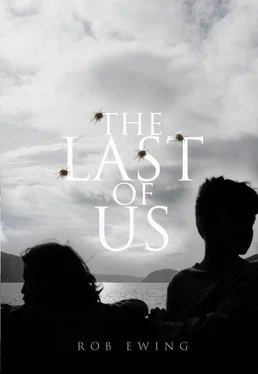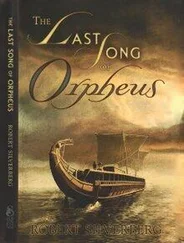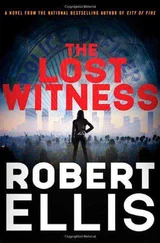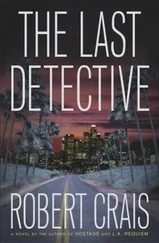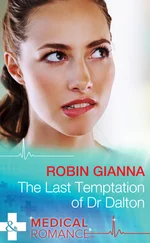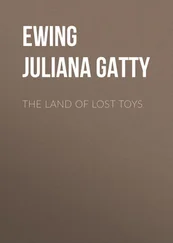We look through the cupboards. Elizabeth goes straight to the fridge. It doesn’t have much of a bad smell.
Also, it’s empty.
The cupboards have things like soap, or cream, or paper towels, or tubes of medicine or stockings. Everything has a clean smell, though, which is a relief.
‘Don’t see any,’ Elizabeth says.
She sits on a footstool, bent right over, looking down at the floor. Calum Ian kicks at the wall behind her.
‘I went in that gym for nothing?’
Her face goes bright red. Already, before anyone else can move, she’s next door, opening cupboards.
‘None of us are giving up.’
Only we don’t find anything. We do find two more fridges. One has an old can of juice in it, which we share out after wiping off any invisible badness. The other fridge is just empty. It doesn’t even smell, which is this day’s newest mystery, maybe without a solution.
Then Elizabeth has another idea. She decides we should look through all the patient records. When I ask what these are, and where, she says, ‘All around us.’
She’s telling the truth. There’s shelves in a clanking metal cupboard, and on the shelves are hundreds and hundreds of brown folders. Then loads more, in an ordinary cupboard that doesn’t move and doesn’t clank.
All of the people: families together, with names I forgot until now. There’s even the kids from my class, even the teacher, even the priest. I want to think that these bits of paper might bring the people back: but they don’t, of course, and so I deliberately don’t look for Mum’s notes.
Calum Ian grabs a record. He reads the first pages then throws the record away. ‘Just scratchy bloody writing,’ he says.
I think he’s being daft, but when I collect one it’s true: I can’t read it either.
Elizabeth pulls out a stack, then begins to go through them. Even doing three takes her ages.
‘There must be a faster way,’ she says. ‘This will just take us for ever.’
We make a plan of choosing ten each, doing them carefully. Pretty soon, though, my ten gets mixed up with Alex’s ten; plus I get bored after six and want to look around for quicker ways.
Me: ‘Make your eyes go special for that word. How do you spell that word?’
Elizabeth spells D-I-A-B-E-T-E-S.
Me: ‘Look for it like you’re looking for a colour. Then it jumps out. I’ve done that looking for shiny packets with sweets. It really works, try it.’
We make our eyes go sharp for DIABETES. Except it doesn’t work: they go sharp for other words like FIRE EXITand DISPENSARYand AIR AMBULANCE CALLand YOU DON’T HAVE TO BE MAD TO WORK HERE BUT IT HELPS. Never for DIABETES.
Then Elizabeth has one more idea. She looks for a single record. The records go by alphabet – A, B, C, D – until it gets to M. Then there’s a whole wall for Mac, and a shelf for MacNeil. After this, the letters go back to normal, until the end, when there’s no X or Z.
She has Alex’s notes – Alex MacLeod. Elizabeth turns them over, upside down, inside out. When Calum Ian asks her what she’s looking for she says, ‘A sign, a label, anything to say his illness.’ But there isn’t one.
Calum Ian gets fed up. He kicks the footstool Elizabeth sat on, hard enough for it to flip over.
‘Looks like you’re facing your worst enemy,’ I say to him, when he decides to calm down.
With eyes narrowed into slits he looks at me and says,
‘So I am.’
Now Elizabeth says she wants to be alone, wants to go to one of the other rooms. Me and Alex are left behind.
We swirl on chairs, play stone-scissors-paper. Alex invents a new category: fingers waving for fire, which burns paper, melts scissors, cracks stone. Fire is the all-time winner.
‘You play games,’ Calum Ian says, ‘while the rest of us have to go through fucking bloody hell.’
We try not to look at him. Alex pays attention instead to the scab he has on his knee. He picks it off, and I watch the red dot grow into a red bead.
Me: ‘Does it hurt?’
Alex: ‘Not if you’re brave. Injections make me brave. It’s easy. I used to hate it, but my skin went strong.’ His eyes go blurry through thinking then he says, ‘Even so, I don’t mind not getting my injections.’
Me: ‘But you’ll get sick.’
Alex: ‘Don’t care. Then I might get to see my mum and dad. Because I’m not scared. Not any more. Fact, not opinion – when you’re dead you’re zero.’
I get him in a friendly kind of head-lock.
‘Listen,’ I say. ‘The only obstacle is us. It’s better to believe in being alive than what the opposite might be. It’s infinity better to believe that.’
Alex: ‘So why d’you talk to your mum?’
I didn’t think he’d noticed. Now I feel shy about it, not knowing at all what to say.
‘Gave your mum a fright once,’ he tells me.
‘ My mum. You know about my mum? I want to know all the facts, tell me.’
Alex looks worried, or surprised, like I sounded too keen. Then he says, ‘When I was little. Four, maybe three? Your mum was delivering letters. Mum saw her on the path coming. It was very funny.’
‘Keep going, keep going!’
‘We waited by the door. Just before she got there I shoved my whole hand through the letterbox.’
‘What did she say!’
‘Em… My mum, it was her that told me to do it. She wanted to give your mum a letter to post. Your mum took letters as well as bringing them, didn’t she?’
‘ Anybody knows that! She was a postwoman.’
‘Well, so I gave it to her. Said, Hullo! She took it and gave me hers. I heard her go away laughing.’
Because it’s about Mum I can’t find it normal like any other story, or even boring: I’m instead hungry to know every last detail.
‘Didn’t see her,’ Alex admits, in the end. ‘But she was laughing. She took my letter and she went.’
It’s when he says this that I get my best idea.
Elizabeth is on her own, in her mum’s old doctoring room. Her eyes look red like she’s been crying, but that’s impossible, because Elizabeth is way strong and never cries.
‘Go away,’ she says.
I hide behind the door – nearly leaving, wondering if I barged in, wondering if she’s in a crabby mind.
In the end she calls me back – makes me stand straight at the desk in front of her like a soldier.
‘Only wanted a few stupid seconds alone,’ she says.
I don’t know if this means she’s already had them: so I count thirty in my head in case she didn’t, then begin to tell her about how Mum used to pick up letters from people, even letters without stamps. But then I notice the room around is a mess: too much of a mess for Elizabeth to have made it on her own. Cupboards open, books on the floor. The bin overflowing with plastic aprons, gloves.
She stops me talking. Instead, she shows me a framed picture. Of Elizabeth with her mum and dad.
In the picture she’s making her eyes go squint. I didn’t know she could do it – make a squint, be funny. She looks daft, happy even.
‘Just after we came.’ She rubs a smudge from the glass. ‘We were at the beach, Traigh Eais. This was Mum’s favourite because it was early days. Dad had a beard then, see? And I didn’t have any scars.’
She puts a finger on her picture-cheek, then on her real cheek, to feel the new hardness there.
‘What I don’t know is what to do. Usually I think: what would Mum do? What would Dad do?’
‘What would they?’
Her voice cracks with – I don’t—
I start to tell her about my idea. It begins with how Mum didn’t just deliver letters, she collected things as well. And one group of things she collected were the squares of paper from old people, or ill people, which she took to the practice and exchanged for white bags of medicine.
Читать дальше
Конец ознакомительного отрывка
Купить книгу
